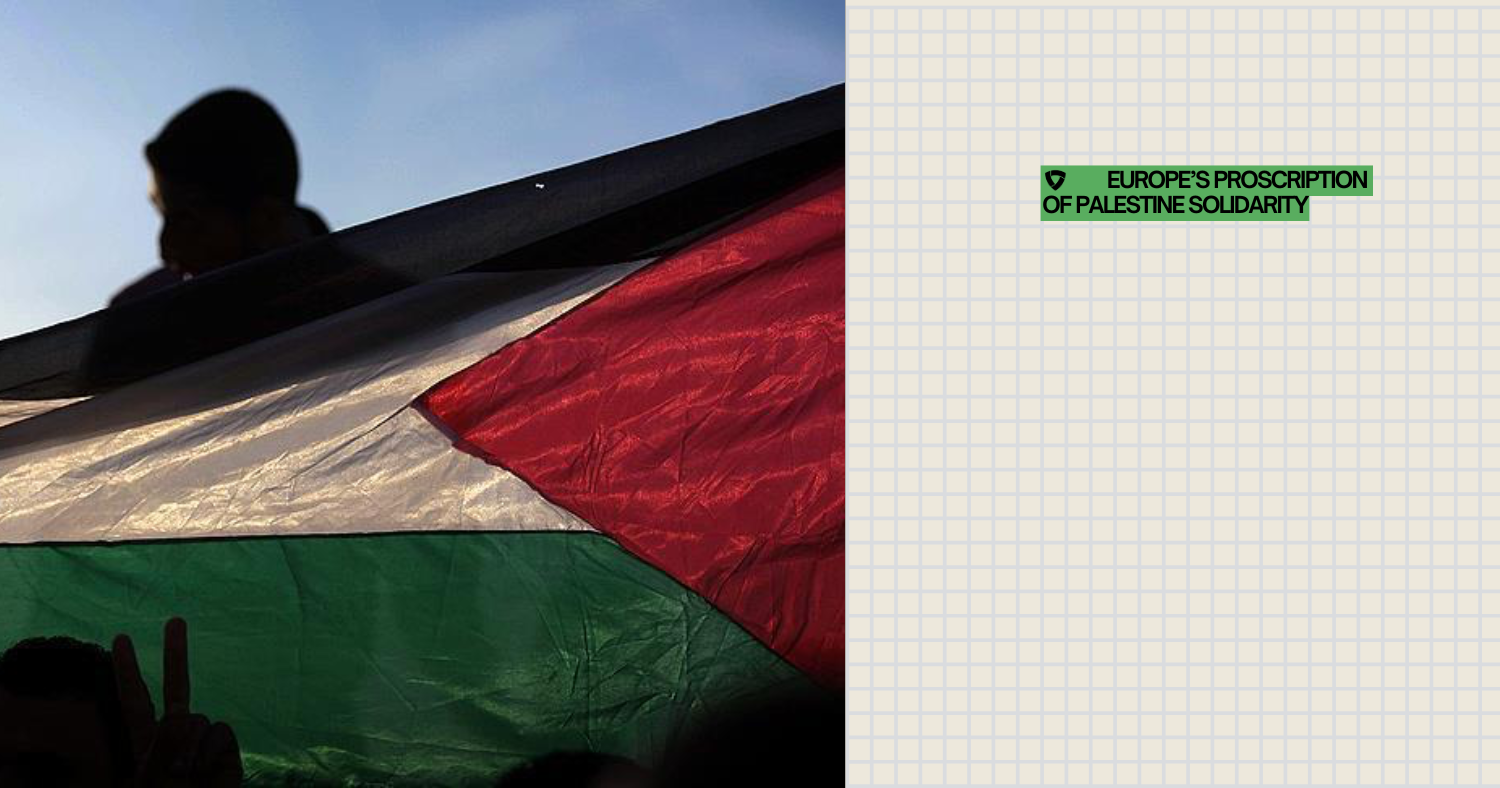Europe’s Proscription of Palestine Solidarity
Summary
This report documents how European governments instrumentalise counterterrorism measures to criminalise Palestine solidarity groups. Drawing on legal frameworks and case studies from the UK, Germany, the Netherlands, and France, it exposes a convergent pattern of repression to demobilise opposition to the Israeli genocide against Palestinians.
These repressive measures – advanced through alliances between state actors, Zionist lobby groups, and arms manufacturers – follow established patterns of political control and colonial violence. The UK’s Terrorism Act, Germany’s Associations Act, and France’s dissolution powers all employ legal mechanisms reminiscent of colonial emergency laws, suspending rights to maintain imperial dominance while disproportionally targeting marginalised communities. Europe’s so-called counterterrorism measures perpetuate similar dynamics of selective enforcement, particularly targeting those who stand in solidarity with Palestinians, Arabs, and Muslims. Just as colonial administrations framed liberation movements as existential threats, European states now codify Palestine solidarity as ‘terrorism’ and ‘public order threats’. These designations mobilise police powers, courts, and prisons to enforce repression while insulating European complicity in the Israeli settler-colonial and ethno-nationalist project.
The report highlights how vague definitions of ‘terrorism’ enable states to criminalise basic acts of solidarity and bypass judicial oversight. These measures are deployed against the Palestine solidarity movement to protect economic and political interests tied to the Israeli colonisation and occupation of Palestine. Cases like the UK’s proscription of Palestine Action, Germany’s ban of Samidoun, and France’s targeting of Urgence Palestine, illustrate this repression, which is now expanding across Europe, with Belgium and Italy escalating measures that could pave the way for future proscriptions. Yet the report underscores that the intensity of this crackdown reflects the growing power of Palestine solidarity movements. While these bans aim to chill broader support for Palestinian liberation, historical precedent suggests such repressive tactics often fail against determined collective movements for justice.
Ultimately, this report serves both as documentation of alarming developments in Europe and as a reminder that standing in solidarity with oppressed and colonised peoples cannot be legislated away. While its focus is on repressive state measures, the very intensity of this crackdown reveals a truth beyond legislation: power escalates its violence only when forced to respond to movements it cannot contain. The bans detailed here are not proof of the state’s strength, but of its fear.

